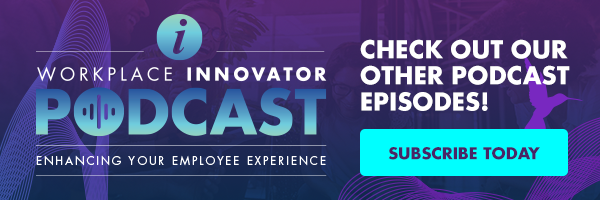How The Employee Experience & Technology Are Shaping The Future of CRE


We’re not working the same way we did ten years ago, or even five years ago. Things are changing quickly, and as workplace innovators it’s our job to keep up. We spoke with two experts in both the future of work and the future of the workforce. Here’s what they had to say about what’s coming soon to an office near you.
Disruption in CRE: Practical Innovation & Predictions For The Next Five Years
Lorri Rowlandson | Senior Vice President, Strategy and Innovation, BGIS
“It’s really a combination of learning about cool, new disruptive technologies and innovative practices, but keeping it grounded in reality by highlighting something that you can start today. So you can take realistic steps towards embracing disruption and leveraging transformation.”
Engagement & Collaboration Across Generations in the Workplace
Porschia Parker | CPC, ELI-MP, Founder and CEO of the Millennial Performance Institute
“That employee engagement piece is so important because from there everything else can spring out of that. You can talk about leadership development, you can talk more about time management, but all of that comes from having an engaged employee – so that’s really the foundation of it all.”
Porschia may know more about millennials than they know about themselves. As founder and CEO of the Millennial Performance Institute, she has built her career around coaching companies on how to appeal towards this new group of workers, and how they can stay ahead in the war for top talent. She understands the importance of fostering engagement and collaboration with the working world’s largest group, which is just what we cover during our podcast.
We discussed how millennials’ upbringing had an effect on their expectations in the workplace – but they’re not as demanding as you think. Porschia doesn’t believe millennials are fundamentally different than other employees, but they are much more likely to ask for what they want upfront, for instance, during the interview as opposed to five years in. They tend to ask for clarification about internal advancement opportunities and work flexibility options – which are things many employees want, millennials are just more upfront about it.
The overarching theme we came to discover is workplaces are going to have to start shifting focus and listening to what their employees want if they hope to stay relevant. Flexible hours, transparency when discussing opportunities for advancement, and providing workspaces that appeal to the worker benefit everyone involved, not just millennials. Showing your employees you care about their needs makes them more likely to stick around, which is the ultimate goal for workplace leaders both today and tomorrow.
